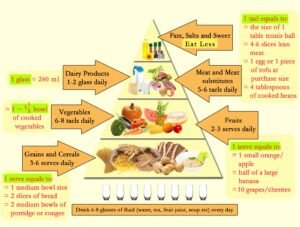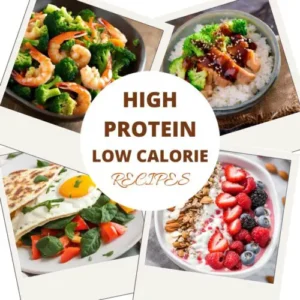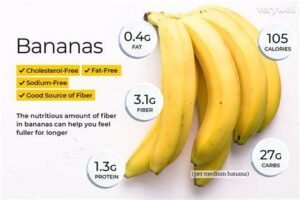Busting the Myth: Are Multivitamins Enough?
You’ve probably heard that popping a multivitamin every morning is all you need to fuel your workouts. Wrong! While multivitamins offer a general nutritional base, they often fall short in providing the specific nutrients athletes demand to optimize their performance. Discovering the best vitamins for working out is crucial for unlocking your body’s full potential.
Your body is a high-performance machine, and it needs specialized fuel to perform at its peak. Let’s dive into the vitamins and minerals that can truly supercharge your athletic performance.
click to see another blog
Fuel Your Body, Fuel Your Performance with the Best Vitamins for Working Out
Think of your body as a race car. It needs the right blend of fuel additives to run smoothly and powerfully. That’s where vitamins and minerals come in. They aren’t just for couch potatoes; they’re essential for anyone pushing their physical limits.
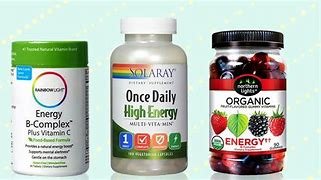
Let’s break down the key players:
Pre-Workout Powerhouse: Get Ready to Rumble
- B Vitamins, Especially B12: Ever felt like you could run a marathon on empty? B vitamins, particularly B12, are your energy all-stars. They help convert food into fuel, giving you that extra pep in your step.
- Vitamin C: More than just a cold fighter, vitamin C is a crucial antioxidant. It helps protect your cells from damage during intense workouts, reducing muscle soreness and speeding up recovery.
Post-Workout Recovery: Rebuild and Recharge
- Protein Power with Vitamin Boost: Protein is the building block of muscle, but did you know that many protein supplements are fortified with essential vitamins and minerals? This combo pack helps repair muscle tissue and replenish lost nutrients.
- Creatine: The Muscle Builder: Creatine is a popular supplement among athletes, known for increasing strength and power. While not technically a vitamin, it works synergistically with other nutrients to optimize results. Just remember, like any supplement, it’s essential to listen to your body and consult with a healthcare professional.
- Hydration is Key: Don’t forget to drink plenty of water! Proper hydration helps transport nutrients to your cells, aiding in recovery and overall performance.
Overall Athletic Performance: The Foundation for Success
- Vitamin D: The Sunshine Vitamin: Essential for bone health and muscle function, vitamin D is often overlooked by athletes. Aim to get enough sunlight exposure or consider supplementation.
- Iron: Fuel Your Muscles: Iron helps carry oxygen to your muscles, preventing fatigue and boosting endurance. Female athletes, especially, are at risk for iron deficiency.
- Magnesium: The Calm and Collected Mineral: Magnesium supports muscle function and relaxation, helping to prevent cramps and improve sleep.
Remember, this is just a starting point. Every athlete’s needs are unique. Consider consulting with a registered dietitian or sports nutritionist to create a personalized vitamin and mineral plan.
| Essential Vitamin/Mineral | General Benefits | Benefit for Athletes |
| Vitamin B12 | Energy production | Best B vitamins for athletes |
| Vitamin C | Immune support | Natural pre-workout energy boosters |
| Protein (with added vitamins and minerals) | Muscle recovery and growth | Post-workout recovery shake |
| Creatine | Improved exercise performance (mention potential side effects) | Creatine for muscle building |
| Vitamin D | Bone health and muscle function | Vitamin D for athletes |
| Iron | Oxygen transport and prevents fatigue | Iron supplements for athletes |
| Magnesium | Muscle function and recovery | Magnesium for muscle cramps |
| Calcium | Bone health | Calcium for bone health in athletes |
Tailor Your Vitamin Routine for Specific Workout Goals
You might think that a one-size-fits-all approach to vitamins is enough, but the truth is, your body’s needs change depending on your fitness goals. Let’s break down how to optimize your vitamin intake based on what you’re aiming for.
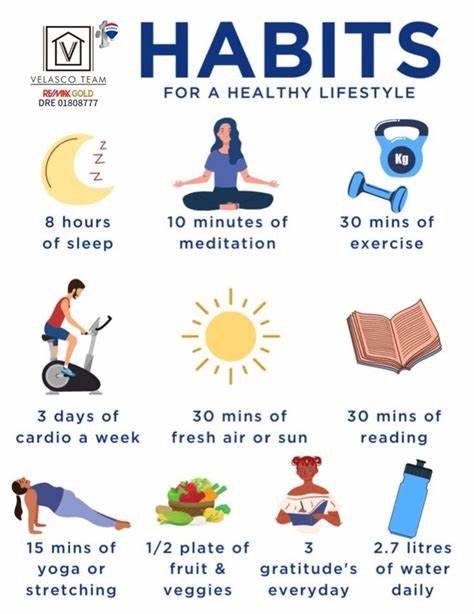
Building Muscle Mass: More Than Just Protein
We all know protein is crucial for building muscle, but don’t forget about the supporting cast of nutrients. Vitamins and minerals play a vital role in muscle growth and repair.
- Focus on the Basics: Make sure you’re getting enough protein through lean meats, poultry, fish, eggs, dairy, legumes, and nuts.
- Vitamin D for Strength: This sunshine vitamin is essential for calcium absorption, which is crucial for bone health and muscle strength.
- Creatine for Power: As mentioned earlier, creatine can boost strength and power output. Consider adding it to your supplement stack if you’re looking to pack on muscle.
- Zinc for Testosterone: While more research is needed, some studies suggest zinc may support testosterone levels, which is important for muscle growth.
Shed Pounds: Fuel Your Fitness Journey with the Best Vitamins for Working Out
Losing weight is a combination of diet, exercise, and patience. Vitamins can support your efforts, but they’re not a magic bullet.
- B Vitamins for Energy: Boost your metabolism and energy levels with B vitamins. They help convert food into fuel, giving you the stamina to power through your workouts.
- Vitamin C for Fat Burning: Some research suggests vitamin C might play a role in fat metabolism. While more studies are needed, it certainly won’t hurt to include it in your diet.
- Fiber-Rich Foods: Focus on whole grains, fruits, and vegetables for sustained energy and to help you feel fuller longer.
Break Through Plateaus: Fuel Your Comeback with the Best Vitamins for Working Out
Hitting a workout plateau is frustrating, but it happens to everyone. Sometimes, tweaking your nutrition can help you break through that wall.
- Variety is Key: Try different types of workouts to challenge your body in new ways.
- Optimize Your Sleep: Aim for 7-9 hours of quality sleep each night for optimal recovery and hormone balance.
- Consider a Vitamin Deficiency Test: If you’ve tried everything else, a vitamin deficiency test might reveal some underlying nutritional issues.
Different Strokes for Different Folks: Tailoring Your Nutrition
The type of exercise you do can influence your vitamin and mineral needs.
- Endurance Athletes: Focus on iron for oxygen transport, B vitamins for energy, and antioxidants to combat free radicals.
- Strength Trainers: Prioritize protein, creatine, and vitamins D and K for bone health.
- High-Intensity Interval Training (HIIT): B vitamins for quick energy bursts and antioxidants to protect your cells are essential.
Remember, this is just a general guide. Individual needs vary, so it’s always a good idea to consult with a healthcare professional or registered dietitian for personalized advice.
Natural Boost: Food and the Best Vitamins for Working Out
You might think popping pills is the only way to optimize your workout performance, but nature has its own arsenal of energy-boosting goodies. Let’s explore how to harness the power of food to enhance your athletic abilities.
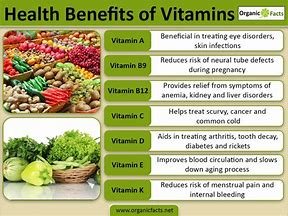
The Power of Plants: Nature’s Energy Boosters
Fruits, vegetables, and whole grains are packed with essential vitamins, minerals, and antioxidants that can supercharge your workouts.
- Hydration Station: Water is your body’s best friend, especially during exercise. But don’t forget about hydrating foods like watermelon, cucumber, and strawberries. They not only quench your thirst but also provide essential nutrients.
- Energy-Boosting Berries: Packed with antioxidants, vitamins, and fiber, berries like blueberries, raspberries, and blackberries can help reduce muscle damage and improve endurance.
- Power Up with Spinach: This leafy green is a nutritional powerhouse, providing iron, magnesium, and vitamin K, all essential for athletic performance.
- Whole Grains for Sustained Energy: Brown rice, quinoa, and oats offer complex carbohydrates that provide a steady release of energy, keeping you fueled for longer workouts.
Beyond Vitamins: Essential Tips for Optimal Performance
While vitamins play a crucial role in athletic success, other factors contribute significantly to your overall performance.
- Prioritize Sleep: Aim for 7-9 hours of quality sleep each night to allow your body to repair and rebuild.
- Manage Stress: Chronic stress can hinder athletic performance. Incorporate relaxation techniques like meditation or yoga into your routine.
- Stay Hydrated: Drinking enough water is essential for optimal performance. Aim to drink plenty of water throughout the day, especially before, during, and after workouts.
- Consult a Professional: If you have specific dietary concerns or goals, consider consulting with a registered dietitian or sports nutritionist.
Remember, while supplements can be beneficial, a well-rounded diet should be your primary source of nutrients. By fueling your body with wholesome foods and adopting healthy lifestyle habits, you’ll be well on your way to achieving your fitness goals.
Fuel Your Fitness Journey with the Best Vitamins for Working Out
Vitamins are undoubtedly essential components of an athlete’s arsenal. They provide the foundational support your body needs to perform at its peak. From the energy-boosting B vitamins to the muscle-building power of protein and creatine, each nutrient plays a unique role in optimizing your workout performance.
However, it’s crucial to remember that vitamins are just one piece of the puzzle. A well-rounded diet, incorporating a variety of fruits, vegetables, and whole grains, is equally important. These natural powerhouses offer a plethora of vitamins, minerals, and antioxidants that can complement your supplement regimen.
Click to see
The Pros of Vitamin Supplementation for Workouts
While a balanced diet is ideal, vitamin supplements offer several advantages. They provide a concentrated dose of specific nutrients, ensuring you meet your daily requirements. For athletes with demanding training schedules, supplements can help bridge nutritional gaps. Additionally, they offer convenience, especially for individuals with busy lifestyles.
The Cons of Overreliance on Workout Supplements
It’s essential to approach vitamin supplementation with caution. Excessive intake of certain vitamins can lead to adverse effects. Relying solely on supplements without a solid dietary foundation can create imbalances. Moreover, the effectiveness of some supplements is still under investigation, and individual responses may vary.
Final Verdict on the Best Vitamins for Working Out
The ideal approach lies in striking a balance between a nutrient-rich diet and targeted supplementation. Consult with a healthcare professional or registered dietitian to determine your specific needs. Remember, consistency is key. Small, sustainable changes to your diet and supplement routine can yield significant improvements in your athletic performance.
By understanding the role of vitamins and minerals, making informed choices, and prioritizing overall well-being, you’ll be well-equipped to conquer your fitness goals.
FAQ,s about best vitamins for working out
General Vitamin Questions
Q: Do I really need vitamins if I eat a healthy diet? A: A healthy diet is a great start, but even the best eaters might miss out on some key nutrients. Vitamins can fill those gaps and boost your overall health and performance.
Q: Can I overdose on vitamins? A: Absolutely! Too much of anything is never good. That’s why it’s important to follow the recommended dosage and consult with a healthcare professional if you’re unsure.
Q: Are vitamin supplements safe for everyone? A: Generally, yes, but it’s always a good idea to check with your doctor, especially if you have underlying health conditions or are pregnant.
Vitamins and Workouts
Q: Will taking vitamins help me lose weight? A: Vitamins alone won’t melt away the pounds. Weight loss comes down to a calorie deficit and regular exercise. But certain vitamins, like B vitamins, can boost your energy levels, making it easier to stick to your workout routine.
Q: Can vitamins help me build muscle? A: Absolutely! Protein is the king of muscle building, but vitamins and minerals play a supporting role. Vitamin D helps with calcium absorption for bone and muscle health, while zinc might support testosterone levels.
Q: What vitamins should I take before a workout? A: B vitamins are great for energy, while vitamin C can help protect your cells from damage.
Q: What vitamins should I take after a workout? A: Focus on protein to repair muscle tissue and vitamins like D and K for bone health.
Natural Alternatives and Lifestyle Factors
Q: What are some natural alternatives to vitamin supplements? A: Fruits, vegetables, and whole grains are packed with vitamins and minerals. A balanced diet is your best bet.
Q: How much water should I drink? A: Aim for at least eight glasses of water a day, but it depends on your activity level and body size.
Q: Is sleep important for athletes? A: Absolutely! Sleep is when your body repairs and rebuilds. Aim for 7-9 hours of quality sleep each night.
Remember: This information is a general guide. Everyone is different, so it’s always a good idea to talk to a healthcare professional for personalized advice.


